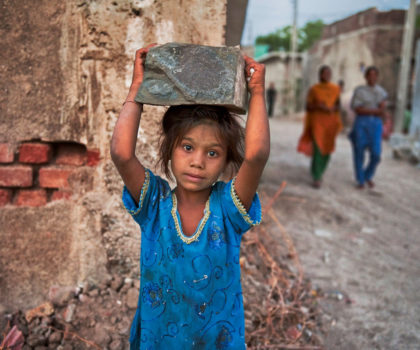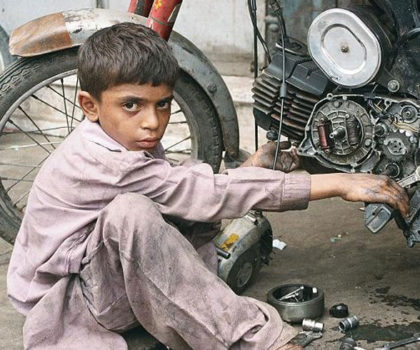Child Right And We
India is a party to the UN declaration on the Rights of the Child 1959. Accordingly, it adopted a National Policy on Children in 1974. The policy reaffirmed the constitutional provisions for adequate services to children, both before and after birth and through the period of growth to ensure their full physical, mental and social development. Accordingly, the government is taking action to review the national and state legislation and bring it in line with the provisions of the Convention. It has also developed appropriate monitoring procedures to assess progress in implementing the Convention-involving various stake holders in the society.
India is also a signatory to the World Declaration on the Survival, Protection and Development of Children. In pursuance of the commitment made at the World Summit, the Department of Women and Child Development under the Ministry of Human Resource Development has formulated a National Plan of Action for Children. Most of the recommendations of the World Summit Action Plan are reflected in India’s National Plan of Action- keeping in mind the needs, rights and aspirations of 300 million children in the country. The priority areas in the Plan are health, nutrition, education, water, sanitation and environment. The Plan gives special consideration to children in difficult circumstances and aims at providing a framework, for actualization of the objectives of the Convention in the Indian context.


Status of Children in India
Recent UNICEF (2005) report on the state of the world’s children under the title “Childhood Under Threat” , speaking about India, states that millions of Indian children are equally deprived of their rights to survival, health, nutrition, education and safe drinking water. It is reported that 63 per cent of them go to bed hungry and 53 per cent suffer from chronic malnutrition.
The report says that 147 million children live in kuchcha houses, 77 million do not use drinking water from a tap, 85 million are not being immunized, 27 million are severely underweight and 33 million have never been to school. It estimates that 72 million children in India between five and 14 years do not have access to basic education. A girl child is the worst victim as she is often neglected and is discriminated against because of the preference for a boy child.
National Commission for Protection of Child Rights
In order to ensure child rights practices and in response to India’s commitment to UN declaration to this effect, the government of India set up a National Commission for Protection of Child Rights.
The Commission is a statutory body notified under an Act of the Parliament on December 29, 2006. Besides the chairperson, it will have six members from the fields of child health, education, childcare and development, juvenile justice, children with disabilities, elimination of child labour, child psychology or sociology and laws relating to children. The Commission has the power to inquire into complaints and take suo motu notice of matters relating to deprivation of child’s rights and non-implementation of laws providing for protection and development of children among other things. Aimed at examining and reviewing the safeguards provided by the law to protect child rights, the Commission will recommend measures for their effective implementation. It will suggest amendments, if needed, and look into complaints or take suo motu notice of cases of violation of the constitutional and legal rights of children. The Commission is to ensure proper enforcement of child rights and effective implementation of laws and programmes relating to children- enquiring into complaints and take suo motu cognizance of matters relating to deprivation of child rights; non-implementation of laws providing for protection and development of children and non-compliance of policy decisions, guidelines or instructions aimed at their welfare and announcing relief for children and issuing remedial measures to the state governments.

